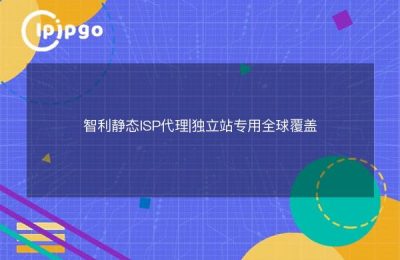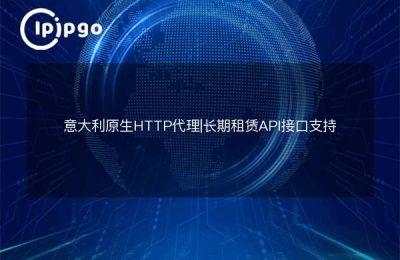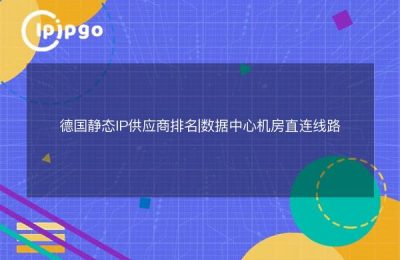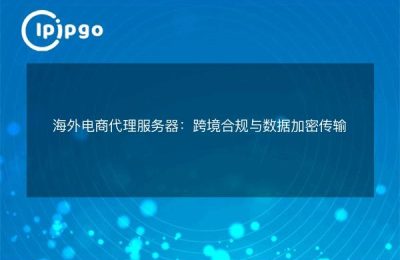
How to choose an anonymous IP in Argentina? Practical tips to avoid blacklists
The biggest headache many users have when using proxy IPs is theIP is recognized by the target website and pulled out of the black. Especially in scenarios where Argentine IPs are required, local service providers are particularly strict in detecting anomalous access. Ordinary proxy IPs are easily recognized as server room IPs, and theNative Residential IPIt is the only way to maximize the simulation of real user behavior.
As an example, the Argentine node of ipipgo'sHome Broadband Dynamic IP PoolA network of real residents from Buenos Aires, each IP is geotagged with a local operator certification. This native IP is used to access local websites when therequest header informationIt will show up as Movistar, Telecom, and other major Argentine carriers, greatly reducing the probability of being blocked by wind control.
Four steps to check whether your IP is "clean" or not
The following tests are recommended before using a proxy IP:
1. Validation of basic information:Confirm that the country, ASN code, and carrier name are shown as Argentina local information through the IP information query interface provided by ipipgo.
2. Blacklist scanning:Use tools such as MXToolBox to check whether IPs are included in common anti-fraud databases
3. Protocol simulation tests:Use browser developer tools to see if the X-Forwarded-For field in the request header is natural
4. Behavioral validation:Try visiting a local Argentine forum to test if frequent CAPTCHAs are required
Top 3 Benefits of Dynamic Residential IP
| comparison term | ordinary proxy IP | ipipgo Dynamic Residential IP |
|---|---|---|
| IP Source | Data Center Batch Generation | Real Home Broadband Rotation |
| life cycle | Hours to days | Automatically changed per request |
| Protocol Support | Basic HTTP only | Full protocol + browser fingerprinting emulation |
Real case: e-commerce data collection how to prevent blocking
A cross-border e-commerce team needed real-time access to the prices of goods on a platform in Argentina, and encountered hourly bans when using ordinary proxies. After switching to ipipgo:
① OpenRequest interval randomization(30-180 seconds)
② SettingAutomatic switching of city nodes(Bu City/Cordoba/Rosario rotation)
③ EnableTLS fingerprint obfuscationfunctionality
Eventually realize 7 consecutive days of stable collection, trigger CAPTCHA frequency reduced by 92%
Frequently Asked Questions QA
Q: What about Argentine IPs that require real-name authentication?
A: Some of ipipgo's static residential IPs support pre-registered account binding, which can complete the real-name authentication process required by operators in advance
Q: How can I tell if an IP is tagged by a target website?
A: Add X-IP-Check field in the request header to trigger ipipgo's auto-replacement mechanism immediately when a 403 response is received
Q: What do I do if I encounter CAPTCHA validation?
A: It is recommended to enable the traffic diversion mode to automatically route the authentication request to the static IP egress that has passed the panel authentication
Selection advice: key parameters comparison table
Focus when choosing an Argentine proxy IP:
- IP type: Preferred LTE mobile network/IPV6 residential address
- Operator distribution: at least 3 local operators covered
- Switching Mode: Supports three switching logics: per request/per session/timed.
- Protocol stack: must support WebSocket over TLS 1.3
ipipgo's Argentine node library has been implementedMillisecond IP replacementWith the intelligent routing algorithm, it can automatically match the exit node that is most suitable for the current business scenario. Through the control panel'sQuality Monitoring DashboardIt can view core metrics such as IP availability, response time, blacklist hit rate, etc. in real time.








